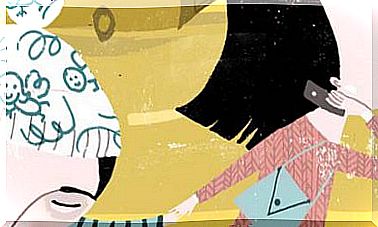Clean Up: You Can’t Be Everyone’s Friend
You can’t be everyone’s friend and it doesn’t suit us either. Learn how to choose your friends, take care of them and heal them to be happier.

It is not the money (some already know), it is not the success (some refuse to believe it), it is not the fame (some would love it). It is the quality of relationships with others that determines that some people are happier than others and (in part) that they live longer.
The largest study on happiness conducted in the world by Harvard University (with the follow-up of 724 people for 75 years) concludes that there is only one factor that consistently explains why some are happier than others: the quality of their relationships .
And for many of us, maintaining good relationships is not easy at all. We are faced with a situation that is very new to us and we do not always know how to manage it, and it is that never before have we related to so many people.
Why do you need to order your relationships
Never before have we had the means to maintain contact with so many people, wherever they are. Never before could someone find us – and contact us – so easily. And this means that in many moments we are dedicating our time and energy to the wrong people.
It is time to take control over our relationships. To order them. To decide which ones we want to keep and take care of and which to get rid of, and to think about what we do to reinforce the ones we really want.
In short, it is time to decide what we want and expect from each relationship. Because we risk our happiness on it (and, according to the aforementioned study, a few years of longevity).
First of all, we need to agree with some premises. Because they will determine what we can do and what makes sense for us to do:
1. The number of relationships that we can handle is finite (and also very small)
We can have thousands of contacts (because we are active in the networks, or because we need it professionally). But we cannot have thousands of relationships. Not even hundreds.
For most of us, the maximum number of active relationships that we will be able to manage intensively and simultaneously will be between 20 and 30. Not many more.
Another very different thing is that this number is not all our possible relationships. They are our active relationships in a precise moment. Within the figure that comes out, there is significant mobility of people. It is natural and we have to live it that way.
2. Different relationships are just that, different
There are no equal relationships. They are all different. There are them with a lot of contact and a lot of depth (it is logical). As there are little contact and minimal link (it is also logical). But there are also those with a lot of contact and little depth (a pity). And of very little contact and enormous bond (a wonderful rarity).
The frequency of contact does not predict the quality of a relationship. Neither does the label that we put on it (family, friends, co-workers, former students …). The quality of a relationship is not determined by its nature, nor by its age, but by its depth.
3. Relationships change
Relationships are not only created, they also grow, evolve, wear out, end, and sometimes –although not many– they are revived or reborn.
Our circle of relationships will always be in constant flux.
This is a fact not only natural but also necessary: if we kept our original relationships forever, our circle would remain closed (already at an early age, we fear ourselves; we would close it only with classmates) and we would miss out on wonderful opportunities to meet people. extraordinary throughout our lives.
Our circle of relationships will never be stable or permanent (and it is good that it is not).
4. Relationships that are not cared for die
Relationships don’t work alone. Someone has to take the initiative, make things happen, provoke meetings, generate spaces to share and make them grow.
If we do nothing in a relationship, sooner or later it will have become little more than a fond memory. And in relationships, our ability to fantasize is powerful, to the point that some of us only live them in our imaginations.
There are people we haven’t met in years. And yet we would swear that we have seen each other recently. And this is the problem: we do nothing because we believe that we are already doing, or that we have already done.
Why is this happening? Well, because what we have surely done is think that we should meet. And for the mind, doing or imagining what we do is the same. In relationships, thinking about doing is not enough: you have to do.
5. A relationship is an invitation: if there is no freedom, there is no relationship.
Relationships are a matter of two, and a relationship can never be an imposition. Relationships only work when we feel the total freedom to be in them the way we want to be. When we think of a relationship in terms of obligation, it is no longer a relationship.
In freedom, relationships grow – we want the relationships in which we feel ourselves – and evolve (if we change our vital moment, it is possible that we change the type of relationship). Without freedom they simply derail.
We cannot relate, even if we want to, with everyone. If the other does not want to, or cannot, there is no possible solution.
These are five premises that govern relationships. Keeping them in mind will help us to know what we can and cannot do in each moment and with each relationship.
The time has come to order
And how are the relationships ordered? Relationships are ordered like anything else we want to order: our closet, a bookcase, the garage or whatever we can think of. We have to do three things: choose, care, and heal.
1. Choose
Because whenever we order something, the first thing we have to do is clean; In the case of our relationships, we have to review them and be clear about which ones we want and which ones we don’t. And if we also discover that we are missing some, we will have created the space to incorporate them.
And there is a fundamental criterion to do so: when I think about a relationship, does it add energy to me or does it subtract me? If it adds energy to me, I choose it. If it remains for me … it will be a clear candidate to get rid of it.
2. Take care
Because once chosen, the things that we keep are the ones that matter to us, and if we don’t take care of them, they spoil; Thinking about our relationships, those that are not taken care of are lost, and taking care of them means dedicating time and energy to them. And to have the time to care, we will first have to neglect: neglect banal contacts, commitments and relationships that take away hours and energy.
3. Heal
Because when ordering we are going to find things that we want but that are spoiled. The same will happen in our relationships: there are those that are very valuable to us and yet they are damaged. Only by healing them can we truly enjoy them.
To heal them, we will have to know how to deal with conflicts : at the right time and with the right tone. Because time does not heal problems, it conquers them.
Choose, care and heal. And in this sequence. These are the bases for ordering. Order whatever. Also in this case our relationships.
It’s worth it, because our relationships are our life and we risk our happiness on it.









